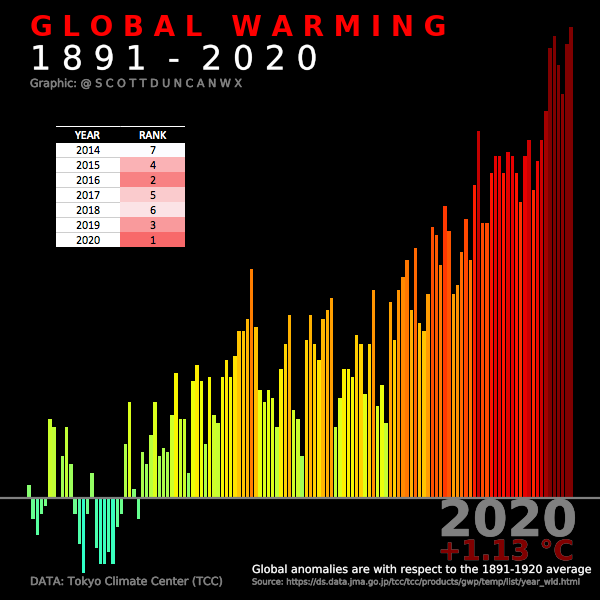
Abrupt climate change and ecosystem collapse will be so severe by 2043 (give or take nine years) that it will be difficult for humans to live.
[THREAD]
[THREAD]
2°C of global warming 'will likely be exceeded between 2034 and 2052' making it "hard for everyone to live" as an 'abrupt collapse' of tropical ocean ecosystems & forests (by 2030/2050) occurs.
1.washingtonpost.com/climate-soluti…
2.carbonbrief.org/deep-emissions…
3.carbonbrief.org/analysis-when-…
1.washingtonpost.com/climate-soluti…
2.carbonbrief.org/deep-emissions…
3.carbonbrief.org/analysis-when-…
'Global warming is about to tear big holes into Earth’s delicate web of life..
At the current rate of warming, abrupt exposure events in tropical oceans will begin before 2030 and spread to tropical forests and higher latitudes by 2050.'
insideclimatenews.org/news/08042020/…
At the current rate of warming, abrupt exposure events in tropical oceans will begin before 2030 and spread to tropical forests and higher latitudes by 2050.'
insideclimatenews.org/news/08042020/…
We need emergency system change now:
Richard Alley, geoscientist at Pennsylvania State University and contributor to multiple IPCC reports:
at 2°C “you are having impacts on most people, impacts on the market, that make it hard for everyone to live.”
washingtonpost.com/climate-soluti…
Richard Alley, geoscientist at Pennsylvania State University and contributor to multiple IPCC reports:
at 2°C “you are having impacts on most people, impacts on the market, that make it hard for everyone to live.”
washingtonpost.com/climate-soluti…
We need emergency system change now.
2°C: 'will likely be exceeded between 2034 and 2052 in the highest emissions scenario, with a median year of 2043.'
(scenario of modest mitigation: 2C threshold could be exceeded as early as 2038; median 2052)carbonbrief.org/analysis-when-…
2°C: 'will likely be exceeded between 2034 and 2052 in the highest emissions scenario, with a median year of 2043.'
(scenario of modest mitigation: 2C threshold could be exceeded as early as 2038; median 2052)carbonbrief.org/analysis-when-…
• • •
Missing some Tweet in this thread? You can try to
force a refresh




